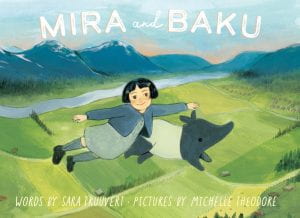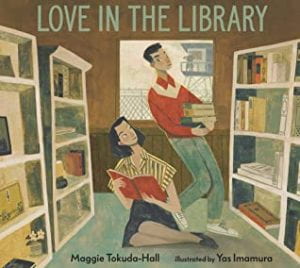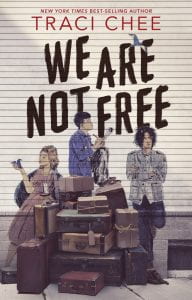 Truuvert, Sara. Mira and Baku. Illustrated by Michelle Theodore. Annick Press, 2023. 978-1-773-21756-7. $18.99. Unpaged. Grades K-3.
Truuvert, Sara. Mira and Baku. Illustrated by Michelle Theodore. Annick Press, 2023. 978-1-773-21756-7. $18.99. Unpaged. Grades K-3.
Mira’s Papa has been absent for quite awhile, but he has never missed her birthday before. However, when her birthday is only five days away, her mother tells her that Papa won’t be back for it. Mira is extremely upset by this news, so she asks Baku, her imaginary friend (and a creature from Japanese folklore), to help her find Papa. Together, they fly over mountains, fields, oceans, and villages. Throughout their travels, they discover clues as to Papa’s whereabouts, such as their abandoned house and his abandoned shop. As they search for Papa, Mira relives many fond memories of collecting stones with her father. Finally, her birthday arrives, along with a surprise. Although Papa is unable to be there in person, he has found a way to let Mira know she is loved. Colorful illustrations of the Canadian countryside are interspersed with more neutral, washed out spreads that reflect Mira’s somber mood. Back matter includes an author’s note describing Japanese Canadian internment in more detail, as well as a list of websites where readers can find more information on the topic.
THOUGHTS: Young children will probably need some background information and guidance to fully understand why Mira’s Papa is absent (he is being held in an internment camp). However, this book will resonate with any child experiencing family separation, whether their family member is in the military, incarcerated, or deceased. Mira’s way of coping with her father’s absence (turning to Baku and reminiscing about the happy times) could potentially provide comfort to other children who are experiencing a similar separation.
Picture Book


